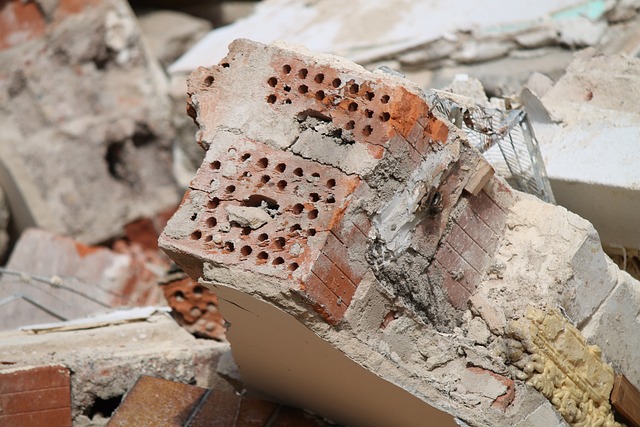Construction projects are integral to the growth and development of our communities, but they can also leave a lasting impact on the environment. From contaminated soil to hazardous materials, construction sites often require remediation to address environmental concerns and ensure compliance with regulatory requirements. At Blackstone Solicitors, we understand the complexities of construction site remediation and offer legal guidance to clients across England and Wales. In this article, Construction Site Remediation, we will delve deeper into the subject.
Please click here to find out more about our Construction Law services
Free Initial Telephone Discussion
For a free initial discussion with a member of our New Enquiries Team, get in touch with us today. We are experienced in dealing with all the legal aspects of construction site remediation and once instructed, we will review your situation and discuss the options open to you in a clear and approachable manner. Early expert legal assistance can help ensure you are on the best possible footing from the start and also avoid the stress of dealing with these issues on your own. Simply call us on 0345 901 0445 or click here to make a free enquiry and a member of the team will get back to you.
Understanding Construction Site Remediation
Construction site remediation refers to the process of identifying, assessing, and addressing environmental contamination or hazards present on a construction site. These contaminants may include chemicals, heavy metals, petroleum products, asbestos, or other hazardous substances that pose risks to human health and the environment. Remediation aims to mitigate these risks and restore the site to a safe and environmentally sustainable condition.
Environmental Regulations and Compliance
In the United Kingdom, construction site remediation is governed by a complex framework of environmental regulations and legislation. Key regulations include the Environmental Protection Act 1990, the Water Resources Act 1991, the Contaminated Land Regulations 2006, and the Environmental Permitting (England and Wales) Regulations 2016, among others. These regulations impose strict requirements on developers, contractors, and landowners to identify and remediate environmental contamination effectively.
Failure to comply with environmental regulations can result in significant legal and financial consequences, including fines, penalties, and reputational damage. Therefore, it is essential for all parties involved in construction projects to understand their obligations and ensure compliance with relevant laws and regulations.
Risk Assessment and Site Investigation
The first step in construction site remediation is conducting a comprehensive risk assessment and site investigation. This involves identifying potential sources of contamination, assessing the extent of contamination, and evaluating risks to human health and the environment. Site investigations may include soil and groundwater sampling, laboratory analysis, geotechnical assessments, and environmental monitoring.
By thoroughly understanding the nature and extent of contamination, stakeholders can develop appropriate remediation strategies tailored to the specific characteristics of the site. Early identification of environmental risks also allows for proactive risk management and mitigation measures to be implemented during the construction process.
Remediation Techniques and Technologies
Once environmental risks have been identified, remediation efforts can begin. There are various techniques and technologies available for remediation, depending on the type and extent of contamination present. Common remediation methods include excavation and removal of contaminated soil, in-situ chemical oxidation, bioremediation, soil stabilization, and containment measures such as capping and barriers.
Advancements in remediation technologies, such as soil washing, thermal desorption, and phytoremediation, have enabled more efficient and cost-effective cleanup of contaminated sites. However, selecting the most appropriate remediation strategy requires careful consideration of site-specific factors, including soil and groundwater conditions, contaminant characteristics, regulatory requirements, and project constraints.
Legal and Regulatory Considerations
Construction site remediation involves navigating a complex legal and regulatory landscape, requiring expertise in environmental law and compliance. Key legal considerations include obtaining necessary permits and approvals, complying with regulatory reporting requirements, addressing liability issues, and negotiating agreements with regulatory authorities and stakeholders.
Environmental liabilities associated with contaminated sites can have significant implications for developers, contractors, lenders, and property owners. Therefore, it is essential to engage legal counsel early in the remediation process to assess potential risks, develop risk management strategies, and ensure compliance with legal and regulatory requirements.
Conclusion
Construction site remediation is a critical aspect of sustainable development and environmental stewardship in the construction industry. By addressing environmental contamination and hazards proactively, stakeholders can mitigate risks, protect human health and the environment, and achieve compliance with regulatory requirements. At Blackstone Solicitors, we provide comprehensive legal guidance to clients involved in construction projects, helping them navigate the complexities of environmental law and remediation to achieve successful outcomes. With our expertise and commitment to excellence, we assist clients in overcoming challenges and fulfilling their environmental responsibilities across England and Wales.
How we can help
We have a proven track-record of helping clients deal with the legal implications of construction site remediation. We will guide you through all the necessary legal due diligence in a comprehensive and timely manner and support and advise you with all the negotiations. We firmly believe that with the right solicitors by your side, the entire process will seem more manageable and far less daunting.
Please click here to find out more about our construction legal services.
How to Contact our Construction Solicitors
It is important for you to be well informed about the issues and obstacles you are facing. However, expert legal support is crucial in terms of saving you money and ensuring you achieve a positive outcome.
To speak to our Construction solicitors today, simply call us on 0345 901 0445 , or allow a member of the team to get back to you by filling in our online contact form. We are well known across the country and can assist wherever you are based. We also have offices based in Cheshire and London.
Disclaimer: This article provides general information only and does not constitute legal advice on any individual circumstances.



